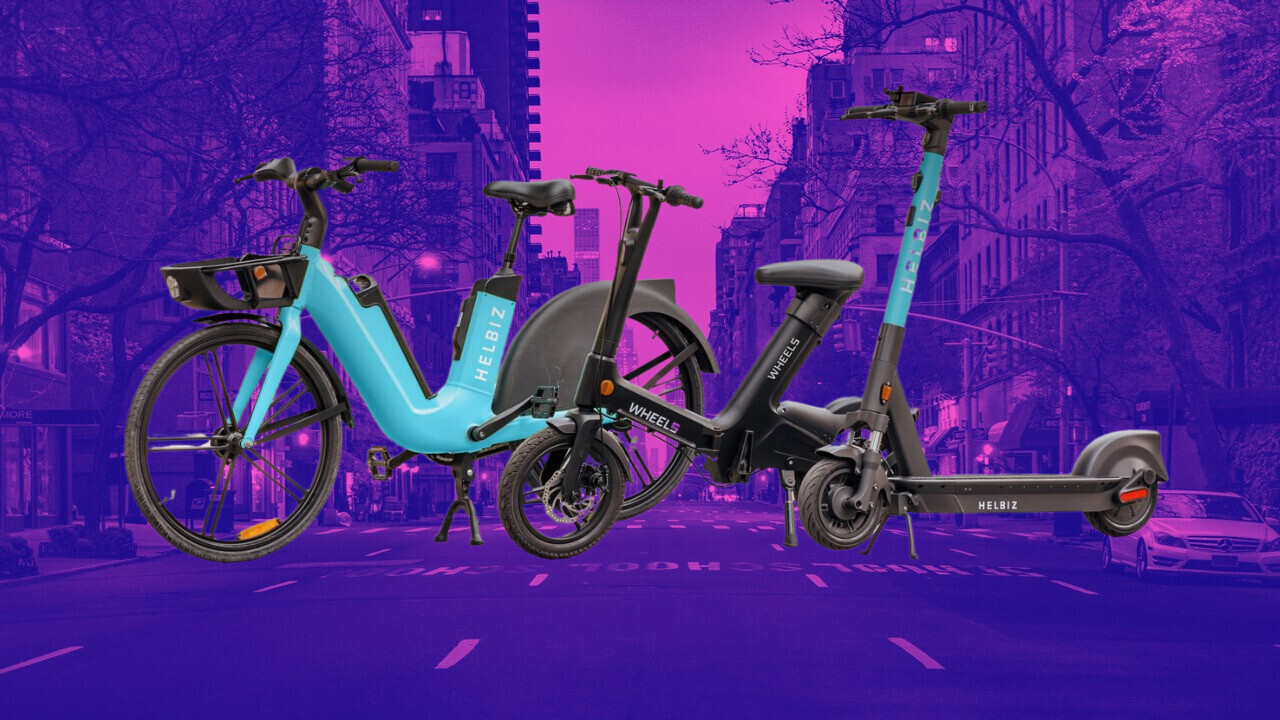
This week, Italian micromobility vendor Helbiz announced it signed a letter of intent to acquire US escooter company Wheels. Doing so will create a powerful fleet that encompasses ebikes, escooters, mopeds, adaptive vehicles, and Wheels’ two-wheeled, sit-down device.
There are a lot of reasons why I think this is an excellent partnership:
Targeting an underserved portion of riders
I’ve been a big fan of Wheels for a while. Founded in 2018 in California, the company creates a type of scooter that expands the market accessibility.

The escooters feature seats with a low center of gravity and 14-inch wheels to help navigate uneven pavement surfaces.
A first-of-its-kind integrated helmet system gives riders access to a shareable helmet.
According to the company, over half of its riders are women, with more than one-third being over 35. This is significant, as research finds that escooters are massively underutilized by women, with riders most commonly young, urban males.

Helbiz has also developed several adaptive vehicles, which have been deployed in Charlotte in the US.
An escooter attachment fits most wheelchairs, turning them from manual into motorized, capable of 12mph (19kmph).
Also available is a three-wheeled sit-down adaptive scooter.
Both are free to use.
Having all of these options available could expand the micromobility user profile significantly.
Expanding accessibility — and market share
While I’m not suggesting that every single mobility solution should cater to every person (not everyone has a car or motorbike license, for example), anything that expands the micromobility user base can only be a good thing.
Both companies’ accessible offerings could prove compelling to city officials, especially in cities overrepresented by an aging population who can no longer drive cars as they age.
Even in large cities, accessible escooters would be a great way to augment last-mile transport solutions like on-demand carpooling like Berlin’s Berlkönig.
Further, having more commercial product offerings like regular escooters and mopeds helps the company stay profitable. Helbiz is also expanding its products to include live streaming services, food delivery, financial services, and more, all accessible within its mobile app.
It’s unclear how it will all fit together. Still, it’s clearly taken a leaf out of the massively successful Grab playbook in Asia, where the company provides a suite of services, including deliveries, mobility, and financial services.
According to Helbiz CEO and Founder Salvatore Palella:
From a strategic perspective, this acquisition is expected to double revenue, expand the cities served, enhance margins, and reduce costs.
Currently, both companies have a fairly small market footprint in the number of cities they deploy their micromobility in, with Helbiz largely concentrating on the US and Italy. This is a far smaller reach than contemporaries like Tier and Lime.
Wheels is available in 11 US cities, including Berlin in Germany, and via four US college campuses.
By joining forces, they’ll be able to compete for tenders in large cities, especially with their extended choice of mobility solutions. And getting more people out of cars? I am all for it.
Get the TNW newsletter
Get the most important tech news in your inbox each week.





